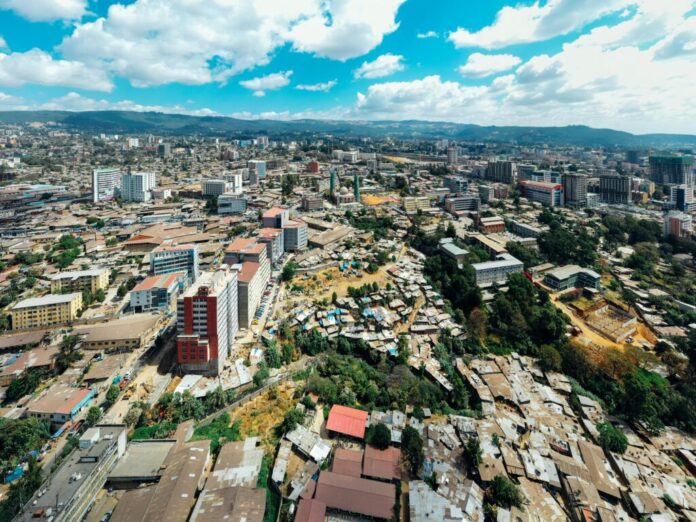The city of Kakuma, located in the African nation of Kenya, was accidentally turned into one of the continent’s biggest refugee camps, and now the Kenyan government and humanitarian agencies are thinking of evolving it into a city, the Associated Press reported.
Over 300,000 tents were placed in Kakuma in 1992 when people escaped turmoil in other countries like South Sudan, Ethiopia, and Congo. The home to many refugees has been redesignated a municipality that local government officials will lead later, after being under the control of the United Nations. A number of refugees have clashed with law enforcement in Kenya due to diminishing food resources and support that many rely on.
Camp residents received a message from the UN’s World Food Programme (WFP) confirming resources would be reduced to 40% of the basic minimum ration, sparking backlash, according to The Guardian. Certain budgets have been stretched thin for periods of time, but given President Trump’s freeze on U.S. aid spending, which provided more than half of WFP’s $9.7 billion funding in 2024, funding has been hit harder.
However, the Kenyan government sees the space as an opportunity for small businesses to grow, pushing refugees into local populations and shifting them off of aid survival. Some of the refugees run businesses but lack the financial resources, with the closest city being eight hours away by vehicle.
Julienne Oyler, who runs Inkomoko, a charity that provides financial training and low-cost loans to African businesses, feels not settling in Kakuma is a disservice to business owners, claiming credit denial as a “tremendous waste of human capital.” “We find that refugee business owners actually have the characteristics that make world-class entrepreneurs,” she said.
“They are resilient. They are resourceful. They have access to networks. They have adaptability. In some ways, what refugees unfortunately have had to go through actually makes a really good business owner.”
Adele Mubalama is one of Oyler’s clients who found refuge in Kakuma after fleeing Congo in 2018. She was out of a job until she took a tailoring course with a Danish charity, resulting in her making fabric masks during the COVID-19 pandemic. After a loan came through from Inkomoko, she was able to expand her business, hiring 26 employees and purchasing new sewing machines. Mubalama’s 2024 profit was $8,300, which is a vast difference from the majority of refugees who live on allowances or vouchers of close to $10 or less per month.
However, there is a survival element in the conversations surrounding Kakuma becoming a self-reliant city. University of Notre Dame associate research professor Rahul Oka highlights the lack of essential resources — like water — that would pause the city’s growth. “You cannot reconstruct an organic economy by socially engineering one,” the professor said.
Freddie Carver of ODI Global, a London-based think tank, said a number of refugees don’t have the luxury of moving to other places in Kenya where jobs are easier to obtain. He feels unless a solution is provided, Kakuma is where they will stay. “If you go back 20 years, a lot of refugee rights discourse was about legal protections, the right to work, the right to stay in a country permanently,” Carver said.
“Now it’s all about livelihoods and self-sufficiency. The emphasis is so much on opportunities that it overshadows the question of rights. There needs to be a greater balance.”
RELATED CONTENT: Kenyan Government Investigating Women’s Rape Allegations Against UK Soldiers
